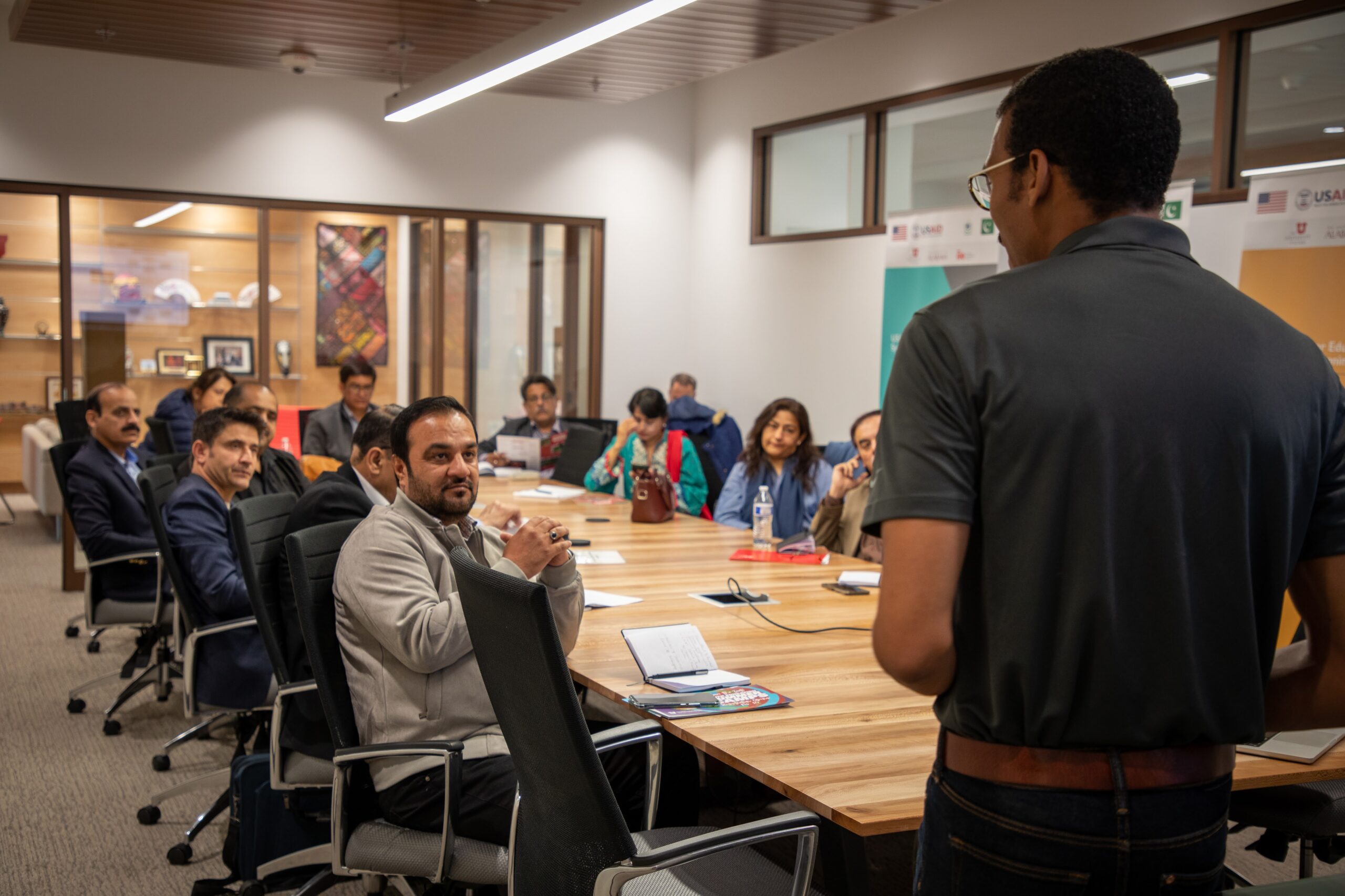HESSA principles in action at Sardar Bahadur Khan Women’s University (SBKWU), Balochistan
Habib Mengal is the Director of the Advancement Cell at Sardar Bahadur Khan Women’s University (SBKWU) in Quetta, from the province of Balochistan, Pakistan. His responsibilities at the university include forging linkages with the community and society to help the students with financial assistance, and to raise funds for his institution and the overall student advancement system at SBKWU.
Mengal attended the financial aid training organized by the USAID’s Higher Education System Strengthening Activity (HESSA) in early 2023, where he received in-depth knowledge of fundraising techniques for the higher education sector and various other methods for students’ financial assistance. Later, he also got the opportunity to visit the University of Utah, the lead implementer of HESSA, on a study tour organized for the directors of student affairs at HESSA partner universities. Here, Mengal met with a variety of student support personnel including leadership from the Office of the Dean of Students, wellness and mental health staff, campus recreation, scholarships and financial aid, and student government. He noted the concerted effort to create opportunities in university offices for students through internships and volunteer positions.
“My sincerest compliments to the University of Utah. When we went as a delegation to visit the University as a part of student affairs, I saw lots of good things being practiced there, which are possible for us to practice in Pakistan as well. One of the fascinating things that I learned—they have an Office for Global Engagement. So, they have a whole team dedicated to just take care of the students who are coming from across the globe with multicultural and demographic attributes with them,” shared Mengal.
He was amazed to see how U takes the utmost care of students from different nations—different nationalities, different languages, different races, and different ethnicities. “I was truly fascinated by the diversity, and how the U staff is trained in their work—they understood the requirements of each student, and in terms of that, they were well coordinated within their departments,” remarked Habib.
So, with these takeaways from HESSA, Habib met with his leadership to prioritize student services on SBKWU campus. “We have a strong team here, with many of our core team members being a part of various HESSA capacity-building programs. We started to strengthen different aspects of the focal areas where we could bring support and investment in the processes and mechanisms of the university. In the same way that I attended the training of financial aid and how to raise funds for the university, the rest of my colleagues, they have learned new concepts of student leadership, mental health services, alumni engagement, etc.” explained Mengal.
He and his team did not look for huge investments and resources from the start, instead, they focused on small contributions within their setup. “We went to the community, and we started talking to them and told them that we are seeking support from the community to just come forward to empower the women of Balochistan and Pakistan. We realized that society is waiting for us to go to them, talk to them, and just get the support from them as we require,” remarked Habib. “They were delighted because, as a whole, they believe that by contibuing to higher education institutes, they can ultimately strengthen their businesses as well,” claims Mengal.
He shares a few examples of contributions from the community and other small donors in Quetta, Balochistan. SBKWU received in-kind support such as equipment for the classrooms and laboratories, paid internships in the corporate sector, resource books for the central library, and even a few solarization projects where the life sciences department building, basic sciences department, and the administration block were equipped with solar energy systems. As a next step, community members giving financial aid helped SBKWU to create an endowment fund. This was a significant step to enable financial assistance for needy students.
“We have developed this system, by the support of the community, that we have an endowment to help and support all the needy and merit-based students so they can continue their studies. And when they graduate, they should come forward to contribute their excellence for the society,” noted Mengal.
In addition to the support of the community and society through the advancement office, SBKWU is supporting research activities. As a result, they have started getting projects from the Government of Balochistan—so far, four research projects on agriculture, livestock, irrigation, and life sciences.
Lastly, Mengal and his team have started profiling graduates and developing an alumni base from which they can identify students who can be resourceful for the community, society, and the institution. “Some are the women politicians and parliamentarians of Balochistan and they are coming forward to help us in terms of bringing excellence in the studies and knowledge for the women students of our community,” shared Mengal.
“All we needed to do was to modify our practices. After so many accomplishments with the help and support of the community, in a short period, we have been encouraged enough to keep on going with the journey. We are happy to create a higher education institution for women where they can contribute on the national level and even an international level. This is the vision we are working on, and, we are confident enough to accomplish that in the coming years,” concludes Mengal.
Habib Mengal (front left) attends a HESSA training at the University of Utah.

